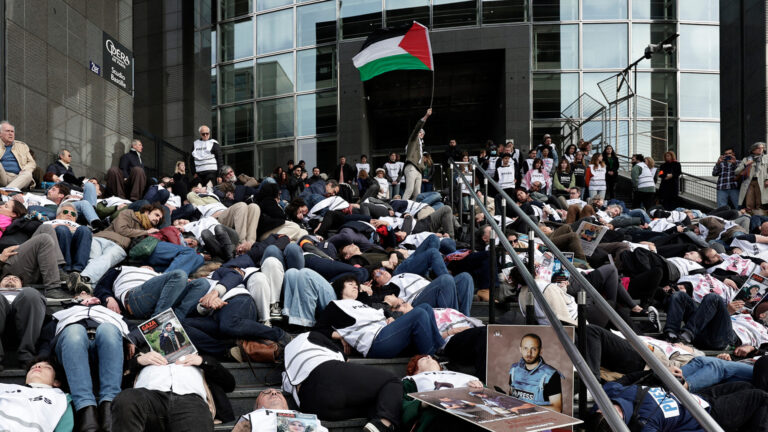At least 1 person died and 50 were injured as a result of a car driving into a crowd at the Christmas market in Germany
The deputy mayor of the German city of Magdeburg said on Friday that at least one person was killed and dozens injured when a car suspected of an attack drove into a Christmas market.
According to the German dpa news agency, Regina-Dolores Stieler-Hinz said that more than 50 people were injured.
The driver of the car was arrested, according to dpa, citing unknown government officials of the state of Saxony-Anhalt.
Regional government spokesman Matthias Schuppe and city spokesman Michael Reif said they suspected it was a deliberate act.
“The pictures are terrible,” he said. “According to the information I have, a car drove into the Christmas market, but from which direction and from how far I can’t say yet.”
Magdeburg University Hospital said it was treating 10 to 20 patients but was preparing for more.
Sirens from first responders clashed with the market’s holiday decorations, including ornaments, stars and leaf garlands adorning vendors’ booths.
Footage from the scene of the besieged part of the market shows debris on the ground.

“This is a terrible event, especially in the days before Christmas,” said Reiner Haseloff, the governor of Saxony-Anhalt.
Haseloff told dpa that he was on his way to Magdeburg, but could not immediately provide information on the victims or what was behind the incident.
Chancellor OIaf Scholz wrote in X: “My thoughts are with the victims and their relatives. We are with them and with the people of Magdeburg.”
Located west of Berlin, Magdeburg is the capital of the state of Saxony-Anhalt and has about 240,000 inhabitants.

The suspected attack happened eight years after the attack on the Christmas market in Berlin. On December 19, 2016, 13 people were killed and dozens injured as a result of an Islamic extremist plowing a crowded Christmas party with a truck. The attacker was killed in a shootout in Italy a few days later.
Christmas markets are a huge part of German culture as an annual holiday tradition that has been preserved since the Middle Ages and successfully exported to much of the Western world.
In Berlin alone, more than 100 markets opened at the end of last month, bringing the smell of mulled wine, roasted almonds and bratwurst to the capital. There are other markets throughout the country.
German Interior Minister Nancy Faeser said late last month that there were no concrete signs of a threat to Christmas markets this year, but that vigilance was wise.








